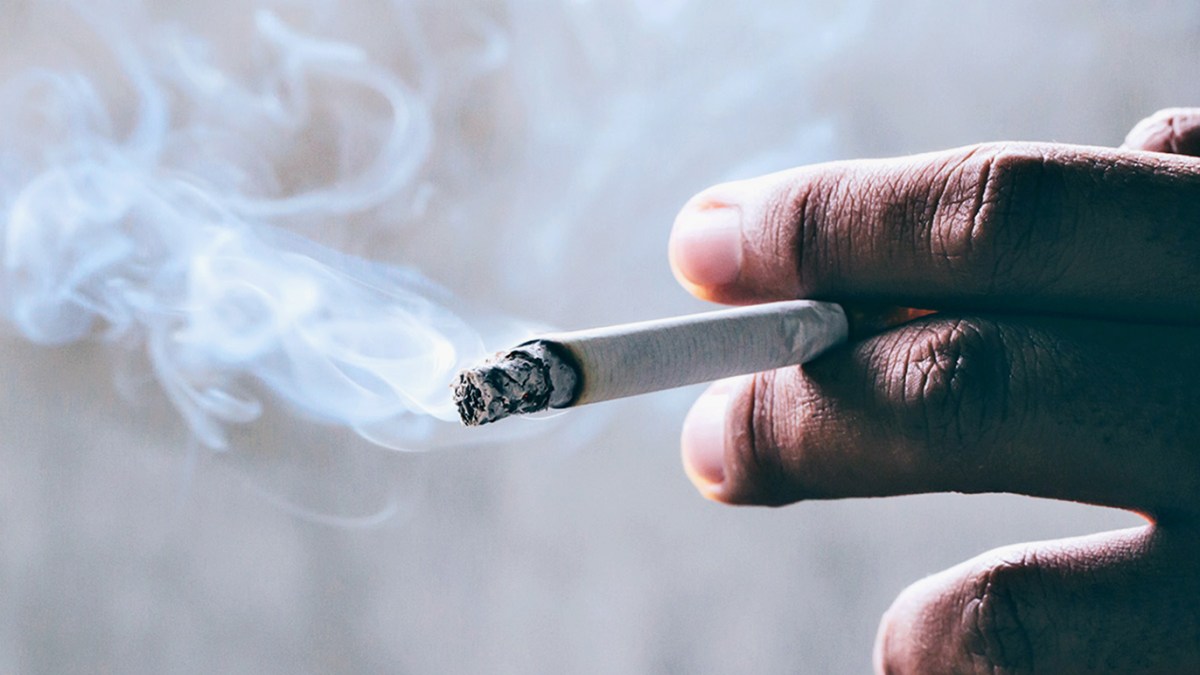The researchers discovered that a certain type of bacteria breaks down nicotine in the guts of mice and reduces the risk of developing fatty liver disease and liver cancer, and the researchers plan to develop a drug from the enzymes produced by these bacteria to reduce the chances of disease in smokers.
In addition to its association with lung disease, cigarette smoking has also been linked to fatty liver disease, and researchers found that a certain type of bacteria breaks down nicotine in the guts of mice, thus reducing the risk of developing fatty liver disease.
According to a report published on the Medical Xpress website on November 24, an international team of researchers affiliated with multiple institutions in China and the United States isolated a type of bacteria that breaks down nicotine in the guts of mice.
The relationship of smoking to fatty liver disease
Tobacco smoking is associated with non-alcoholic fatty liver disease, but the mechanism underlying this association is not clear.
Non-alcoholic fatty liver disease is a type of liver disease that includes a wide range of diseases that usually progress from simple steatosis to cirrhosis and hepatocellular carcinoma in some cases.
Smoking is associated with lung disease (Shutterstock)
Bacteria break down nicotine in the guts of mice
The researchers found that when people (or mice in the experiment) smoked cigarettes, some of the nicotine made its way into the intestines, leading to an increased risk of fatty liver disease associated with scarring and, in some cases, liver cancer.
In the study published in the journal Nature, the research group describes how the researchers isolated the bacteria and why their discovery can reduce the incidence of fatty liver disease in humans, as they found that a certain type of bacteria breaks down nicotine in the guts of mice, thus reducing Possibility of fatty liver disease.
The researchers measured the amount of nicotine making its way into the gut by comparing stool samples from 30 smokers and 30 non-smokers. They then did the same with mice and found similar results.
Next, they sterilized the guts of several lab mice, getting rid of the bacteria in them, then ran the nicotine experiment again, and found that the gut-sterilized mice had more nicotine in their systems, indicating that at least one type of gut bacteria It breaks down nicotine.
Then, through the removal process, they were able to track down a type of bacteria known as Bacteroides xylanisolvens, and it appeared that these bacteria were responsible for breaking down nicotine and reducing its damage inside the guts of mice, as it was producing an enzyme that breaks down nicotine.
Quitting smoking improves health (Shutterstock)
Future applications in humans
In the new study, the scientists confirmed that nicotine builds up in the gut during tobacco smoking, and that the isolated bacteria act as an effective remover of nicotine from the guts of mice, and indeed reduce intestinal nicotine concentrations in nicotine-exposed mice.
Previous research showed that this type of bacteria also lives in the human gut, and the researchers say in their published research, "Our results establish a role for the accumulation of nicotine in the gut in the development of non-alcoholic fatty liver disease, and reveal an endogenous bacteria in the human gut that has the ability to metabolize nicotine."
Researchers are studying the enzymes produced by these distinctive bacteria to see if the enzyme can be produced commercially and developed into an effective drug for breaking down nicotine inside the human body.
The researchers are currently planning to give the drug to smokers in the future by developing it to reduce their chances of developing fatty liver disease.

